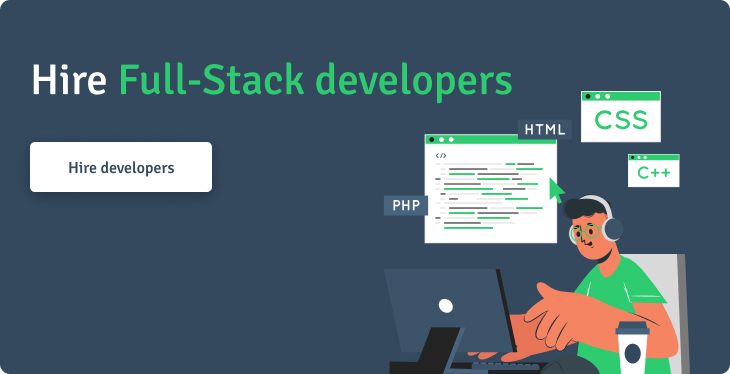Overcoming the Challenges of Hiring Remote Full-Stack Developers: Strategies for Success
Introduction
Hiring remote full-stack developers can be a challenging task for many businesses. While remote work has become more common in recent years, it can be difficult to identify qualified candidates, evaluate their technical skills, and ensure cultural fit in a remote setting. Additionally, the lack of face-to-face interaction and communication barriers can create further challenges. In this blog, we’ll explore the key challenges of hiring remote full-stack developers and offer practical solutions to help businesses overcome them.
Understand Your Hiring Needs

Before you begin your search for a remote full-stack developer, you need to have a clear understanding of your hiring needs. What are the specific skills and experience that your ideal candidate should possess? What will be their responsibilities and role within your organization? By answering these questions, you’ll be able to create a job description that accurately reflects your needs and attracts the right candidates.
Leverage Online Platforms

When it comes to hiring remote full-stack developers, online platforms can be a valuable resource. Leverage specialized talent marketplaces – Use Paidant, Toptal, Upwork, and Paidant to find experienced full-stack developers. You can use these platforms to get the large pool of talented developers from around the world for your business.
Conduct Thorough Interviews

Once you’ve identified potential candidates, it’s important to conduct thorough interviews to ensure that they possess the necessary skills and experience for the job. This is particularly important when hiring remote employees, as you won’t have the opportunity to meet them in person. Conducting video interviews can be a great way to get a better sense of a candidate’s personality, communication skills, and problem-solving abilities.
Test Their Skills

Before making a final decision, it’s important to test the skills of your potential hire. You can do this by assigning a small project or task to the candidate to complete. This will give you a better idea of their abilities and work style, and whether they’re a good fit for your organization.
Communicate Clearly

Before making a final decision, it’s important to test the skills of your potential hire. You can do this by assigning a small project or task to the candidate to complete. This will give you a better idea of their abilities and work style, and whether they’re a good fit for your organization.
Frequently Asked Questions
1. How do I ensure that my job listing stands out from the rest?
To ensure that your job listing stands out, make sure to clearly articulate the responsibilities and requirements of the job, and highlight any unique or desirable qualities of your organization. You should also use relevant keywords and phrases in your listing to increase its visibility in search results.
2. How do I verify a candidate’s skills and experience?
One way to verify a candidate’s skills and experience is to ask for references from their previous employers or clients. You can also ask them to provide examples of their work or to complete a skills assessment or coding challenge.
3. What are some best practices for managing a remote team?
Some best practices for managing a remote team include establishing clear lines of communication, setting clear expectations, providing regular feedback, and using project management tools to keep everyone on track.
4. How do I address cultural and language barriers when working with remote full-stack developers?
To address cultural and language barriers, it’s important to establish clear communication protocols, be patient, and make an effort to understand and respect different cultural norms and practices. You can also use translation tools or hire a translator if necessary.
5. How do I ensure that my remote full-stack developer is productive and engaged?
To ensure that your remote full-stack developer is productive and engaged, it’s important to establish clear goals and expectations, provide regular feedback, and offer opportunities for professional development and growth.


